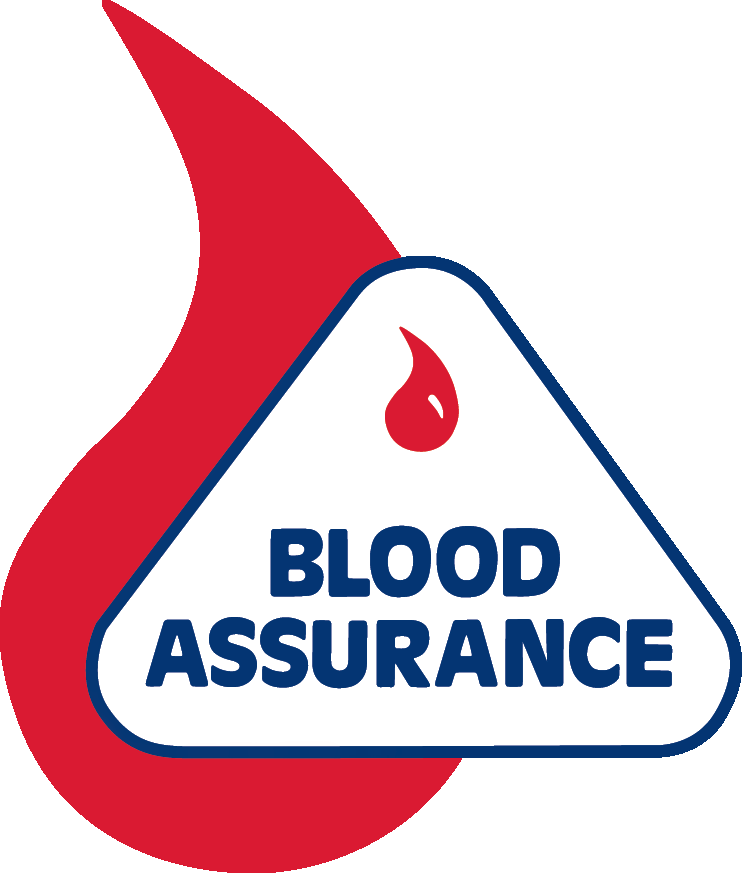Some guidelines have recently been updated including deferral times for Creutzfeldt-Jakob Disease (CJD)/Mad Cow Exposure, HIV risk behaviors, and Malaria Exposure. Please visit here for more information.
GENERAL QUESTIONS
+ Where do blood transfusions come from?
Volunteers donate virtually all of the country's supply of blood for transfusions.
+ How many Americans donate blood?
Less than 10 percent of the eligible population donates and Blood Assurance needs every able donor to give blood for patients in the region. Blood Assurance performs up to 13 tests on each unit of blood to ensure that the blood is safe for the recipient.
+ WHERE DOES my blood donation go?
Blood Assurance serves local hospitals in Tennessee, Georgia, Alabama, Kentucky, and North Carolina.
+ What blood type is in the greatest demand and who has it?
Type O blood is the blood type in greatest demand for red cells. 57 percent of the Latino population has type O blood, 51 percent of the African American population has type O blood, and 45 percent of white Caucasians have type O blood. Type AB is the universal donor of plasma and is also in high demand.
+ Who is my blood used for?
Blood donations from volunteer blood donors are used every day to save people of every age including premature babies, oncology patients, trauma victims and surgery patients, among others.
Donation Questions
+ AM I eligible to donate blood?
To be eligible to donate blood, you must be at least 17 years old weigh more than 110 pounds and be in good health. Those who are 16 years of age may donate but require a one-time parental consent.
+ How often can I donate blood?
Eligible donors can save lives by giving blood up to six times a year. That’s every eight weeks or every 56 days.
+ Why does Blood Assurance ask questions before I donate?
As a licensed nonprofit blood center, Blood Assurance is required to ask specific questions prior to donation to ensure that the donated units are safe – not only for the donor but for the patient who will receive your donation.
+ Can I get paid to donate at Blood Assurance?
To protect the safety of the blood supply, Blood Assurance’s donors are not paid. Blood Assurance is a nonprofit regional blood center, which supplies blood products to area hospitals. Blood Assurance receives reimbursement from hospitals for the costs incurred in collecting, testing and shipping the blood. For-profit paid plasma collections give people monetary compensation for their blood. The FDA does not allow these paid blood collections to be used for human transfusion by hospitals. These collections are most often used in the manufacturing of pharmaceutical products.
+ Can I donate for myself?
Yes, this is called an autologous blood donation, which is the process of donating blood for oneself. For an autologous blood donation, donors are able to donate their own blood for an upcoming occasion where they will need blood transfusions, such as a scheduled surgery. Your blood is collected in the days and weeks prior to surgery, stored and returned to you during or following surgery to replace the blood lost. Donors may ask their physicians to make the necessary arrangements for an autologous blood donation, and then the donor will schedule an appointment with Blood Assurance.
Eligibility Questions
+ Can I donate if I am anemic?
If you are currently being treated for anemia, we encourage you to complete treatment prior to attempting to donate. Your hemoglobin (a measure of protein in your red blood cells) will be checked prior to donating blood and if acceptable you will be able to donate.
+ Do I have to wait to donate if I recently got a tattoo?
If you received a tattoo from a licensed tattoo artist in Alabama, North Carolina, Tennessee or Virginia, you do not have to wait any amount of time before donating blood. Tattoos received in Georgia require a 3 month deferral.
+ Can cancer survivors donate?
Cancer survivors can donate blood after being in remission for at least one year, although some types of cancer, such as leukemia and lymphoma (Hodgkin and non-Hodgkin, for example) will defer a donor permanently. If you are unsure of your ability to donate please call 800-962-0628 to speak with a representative.
+ Can someone with diabetes donate blood?
Diabetics may donate blood as long as the other medical requirements are met.
+ What medications will prevent me from donating?
View our Medication Deferral List.
+ Can I donate if I have recently traveled outside of the U.S.?
Temporary restrictions are placed on potential donors who have traveled to areas where certain diseases are more prevalent. The criteria for these restrictions are updated periodically based on guidance from the FDA and emerging health concerns. To check if your travel history affects your eligibility, visit our FDA Changes page or contact Blood Assurance directly for the most current information.

